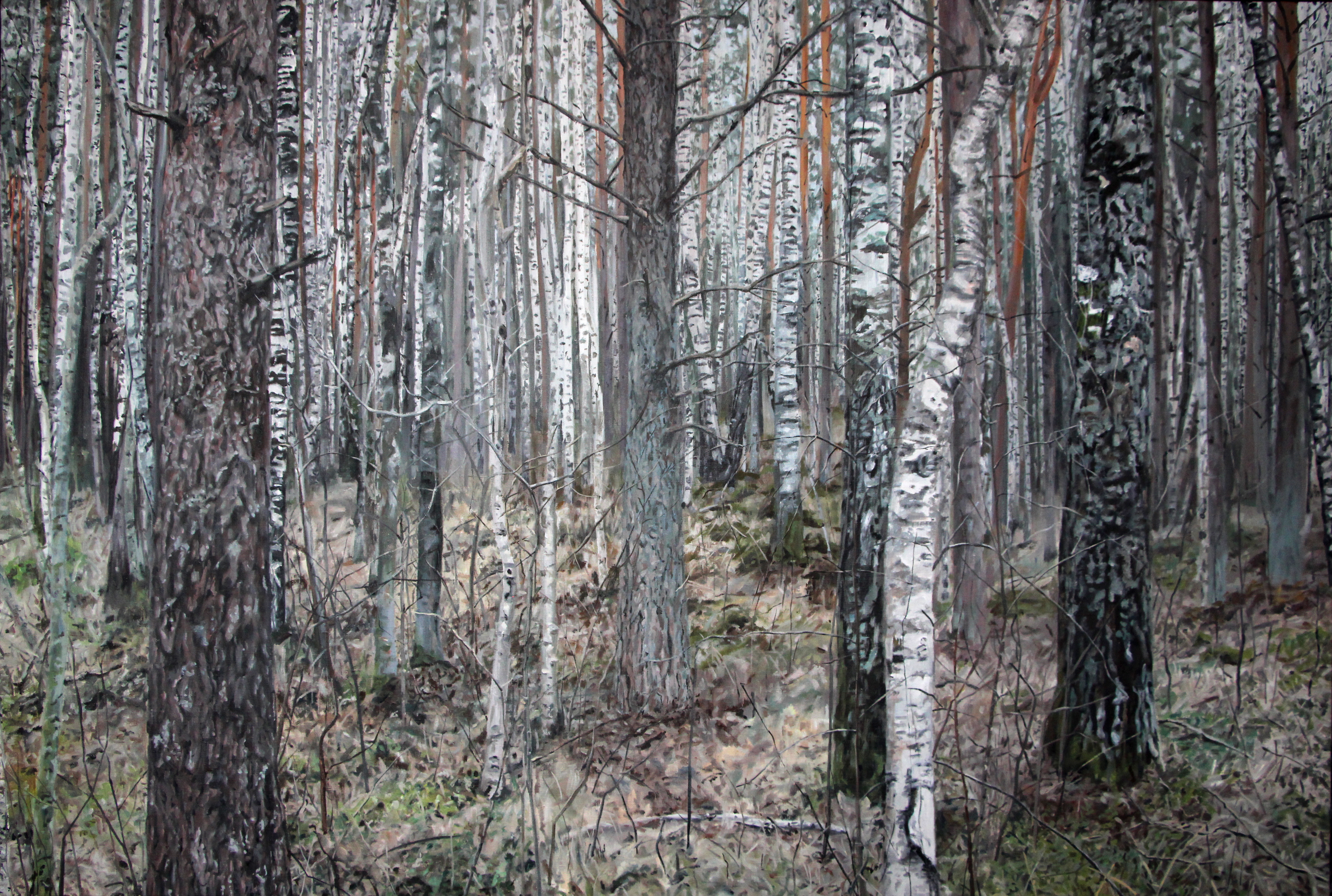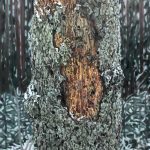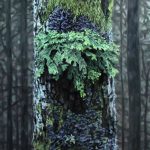A recently-opened exhibition in Tallinn, entitled “Mets. Portreed” (Forest. Portraits), presented meticulously detailed pictures of the Estonian forest at different seasons. Estonia has one of the highest levels of forest cover of any nation in Europe, with almost half of the whole territory of the country made up of forests. The artist, Tallinn-based Jane Remm, tells Deep Baltic a bit about the exhibition, and her feelings about the importance of the forest in Estonian culture.

I guess that my values are much influenced by growing up amongst biologists. We used to go to the forest and nature often and it was always interesting because our parents could give an answer to any of our questions concerning insects, plants or ecosystems. Since then, going to forest has been something natural – a need and a habit for me. Painting the forest does not substitute for real forest, but my paintings contemplate the forest and wilderness and value it.
The exhibition portrays the forest as a constantly changing living environment, and deals with the relationships between people and the forest. The exhibition includes a display of works from three series. The forest area catches your eye and takes you along by dislocating your sense of space. The paintings about mazes deal with the relationships between wild spaces and human impact; they combine the views of structural and classifying diversity of undergrowth mazes, comparing them to the regular monotony of human culture. The portraits of the trees give a closer look at tree stems, portraying their different appearances and how they offer a living environment for many other species: lichens, mosses, mushrooms and beetles.
We are forest people and a certain wildness holds an important place in the self-image of Estonians. The Estonian word “metsik” (wild, ancient, uncivilised, uncultured) is related to the word “mets” (forest). The Estonian landscape is a mosaic and we still have quite a lot of forest here, so everyone has their own relationship with the forest. For us, it is a common habit to visit the forest, but in the world context, living near the forest is an elitist luxury. At the same time, the Estonian forest and attitudes towards it are changing. Constant economic growth wants to extract proceeds from the forest, and urbanisation creates a sense of alienation from the wilderness. The thought of going to the forest is often romantic for city people, but it is uncomfortable there – there are annoying insects, branch mazes and poor ground.”

Some of the work from Forest. Portraits will be exhibited next month at Pärnu City Gallery Artists’ House. You can find out more about Jane Remm’s work at her website.
Header image – Brief Spring
© Deep Baltic 2017. All rights reserved.
Like what Deep Baltic does? Please consider making a monthly donation – help support our writers and in-depth coverage of Estonia, Latvia and Lithuania. Find out more at our Patreon page.





